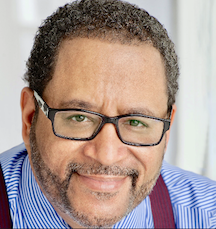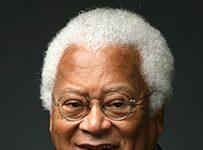 Michael Eric Dyson, a globally renowned scholar of race, religion and contemporary culture, will join Vanderbilt University in Nashville as Centennial Chair and University Distinguished Professor of African American and Diaspora Studies in the College of Arts and Science. He will also serve as University Distinguished Professor of Ethics and Society in the Divinity School. Professor Dyson will join the Vanderbilt faculty on January 1.
Michael Eric Dyson, a globally renowned scholar of race, religion and contemporary culture, will join Vanderbilt University in Nashville as Centennial Chair and University Distinguished Professor of African American and Diaspora Studies in the College of Arts and Science. He will also serve as University Distinguished Professor of Ethics and Society in the Divinity School. Professor Dyson will join the Vanderbilt faculty on January 1.
“I look forward to joining the vibrant and collaborative Vanderbilt community at a pivotal time when — as scholars and engaged citizens — we can make a significant impact on the future of our nation,” Professor Dyson said.
Dr. Dyson currently is a professor of sociology at Georgetown University in Washington, D.C. He is a the author of more than 20 books, including the forthcoming Long Time Coming: Reckoning with Race in America (St. Martin’s Press, 2020) and the bestseller Tears We Cannot Stop: A Sermon to White America (St. Martin’s Press). He won an American Books Award for Come Hell or High Water: Hurricane Katrina and the Color of Disaster (Civitas, 2006).
A native of Detroit, Dr. Dyson is an ordained Baptist minister. He is a graduate of what is now Carson-Newman University in Jefferson City, Tennessee. He holds a Ph.D. in religion from Princeton University.













Dyson has now taught at eight post-secondary institutions. Vanderbilt will be his ninth.
That much movement is not a good sign. It’s time for the gentleman to settle down to some serious scholarship.
He is on the run from a conclusive Title IX investigation at Georgetown that removed him from the classroom after multiple students issues sexual harassment complaints.
It appears that Michael E. Dyson (MED) is one the academic run again. MED has a long track record of leaving these convuluted elite PWIs under questionable circumstances. I wonder what’s the reason this time why he’s leaving his “beloved Georgetown University” that he pontificates about at any given moment. Let’s examine MED intellectual footprint for a moment. MED has a PhD in Religious studies and have consistently Failed to produce any substantive work in that Field. For those who dissent, all of MEDs published work is akin to that of a person with a PhD in American literature instead of Religious Studies.
What I and many others in academia find most interesting is that MED loves to pontificate about Black struggle, Civil Rights, Discrimination, BLM, etc., etc. all the while teaching at PWIs. Talk about being a walking contradiction of the highest order. MEDs public persona is akin to being an “intellectual Stephen” from Django Unchained. Finally, people need to ask MED why he’s not working at Fisk University or TN State University. MED, you’re more than an academic “Al Sharpton”.
Wow, such hate. Dr. Dyson is free to move from any institution that he likes, whenever he likes to do so. There are many people who move a lot throughout their academic careers. Some go back and forth to the same institutions–there is almost a circulation of the elite. At this moment Dr. Dyson has intellectual capital that allows him to be considered as a valuable faculty member at PWIs. He is well paid, and I assure you encounters less drama than he seems to be getting here from people who for whatever reason find it necessary to critique him because he does not teach at an HBCU. There are other scholars who have moved a great deal as well, but because you do not hear about it as much, so there is no critique. Are you suggesting that to be an “authentic African American scholar” that you have to be at an HBCU? That seems unreasonable. As long as his work can be accessed by students and scholars at any institution he is making a contribution and that is what academic life is about.
Hey Webster,
Are you kidding me! Your entire feebleminded response is definitely indicative of a boule, PHFAM, or so-called Black Greek card-carrying member. You need to recognize that no one is above being questioned which doesn’t mean “hate” in any capacity. MED has been at best an average neoliberal professor who has been ran out of several schools. Ask MED about what happened at UPENN. On another note you insecure MED cheerleader. I never stated that MED wasn’t an “authentic scholar” because he didn’t teach at an HBCU. In the final analysis Webster, you’re trying to justify the dysfunctional and haphazard academic behavior of MED and many so-called Black academics which I find appalling.
MED has often been characterized as “full of sound and fury” … Suffice to say, perhaps he would be better suited as a roving guest lecturer and featured speaker at select events. My sense is that he is not motivated when required to handle all of the necessary administrivia in prior university assignments and after a while grates on colleagues and superiors.
Having said that, MED is eloquent, authentic, and a very necessary “spokesperson” for these times.